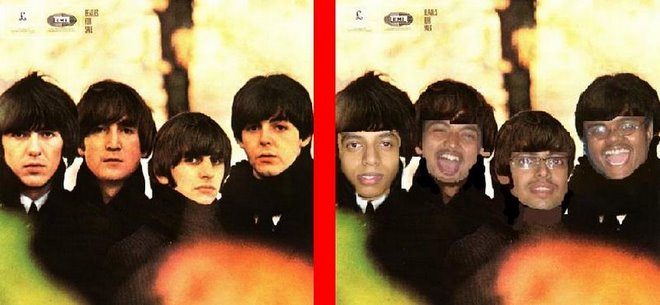The hour had crossed 11 o'clock. The ship had been delayed by 2 hours now. Just when Karim was starting to grow concerned, the distant lights of a ship caught his eye. Within minutes, it had docked on the port, and after all the cargo had been unloaded, came walking a young man about 25 years of age, clean shaven and clad in fine white silk, with a bag slung around his shoulder. Karim approached him and asked, "You must be Rahman?". "No, I'm Qadir. The man you seek is walking behind. There..", came the curt reply, with a finger pointing towards an older man with an unkempt beard and hair, wearing a robe patched in places, and holding a pot. "Ah! The famous potter with his pot," thought Karim, as he proceeded to greet him.
Karim would never forget the look in Rahman's eyes as they shook hands. They seemed to be in a half sleepy daze, composed and relaxed, and yet contained a piercing quality, one that seemed to see straight through one. While it was slightly unsettling at first glance, within minutes the former quality succeeded in putting Karim at ease, and they walked the way to the village talking about an eclectic mix of subjects. As with most conversations across the globe, they too began with the weather, but then digressed to talk on the livelihood occupations prevalent there, the reign of the current sheikh, his feared secret service, his relations with the high priests, the level of social liberty and the rare instance of artistic expression from among the mostly working class populace. The walk thus far had lasted a good 2 hours, and in the following pause, Karim was struck by the unprecedented depth and scope of this discussion that he was a part of. No longer had this thought passed his mind, that Rahman asked him, "So Karim, What do you like about the work you do?". To this, Karim replied with a broad description of his daily work, elaborating on the business cycle, and some peculiarities of his trade. To this Rahman replied by reiterating his question, this time stressing on the 'like', with a look in the eyes that revealed they might know more than they reveal. Karim found himself perplexed, and after a pause that seemed to last ages, gave up and changed the subject to Rahman's village. An hour or so later, they had reached the village, where Karim dropped Rahman off at the potter's place.
The rest of that night Karim spent in a rather disturbed state, not that it was very apparent. His mind was somehow stuck in the conversation with Rahman. He now questioned several aspects of his life, from the tangibly significant, such as the sheikh's rule, his business, to even the trivial, such as the way the moon was nearing its daily submergence, the shadow of the clothes stand in the lamp light. For a brief phase, that could well have lasted for years, nothing seemed to make sense to him, as he found the very bases of his understanding of the world collapsing. Eventually, around the wee hours of the next morning, he managed to get himself together, returning to a fully functional state, though not quite recovering completely from the experience that had so unexpectedly shaken him within. Such a 'recovery', if one may use that term for escaping from the truths that he now saw bare, would never accede to the continuous requests made by his rationalizing, sense seeking self.


No comments:
Post a Comment